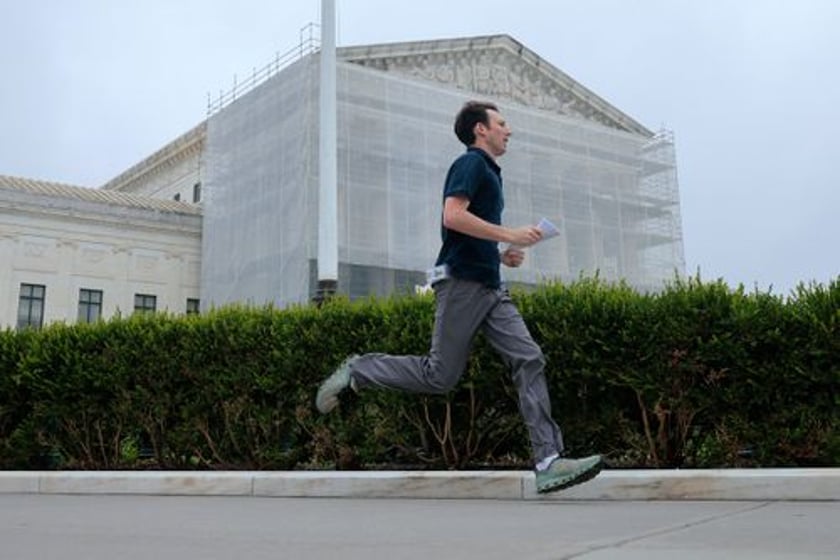Recent legal debates have centered on the intricate relationship between judicial authority and constitutional rights, particularly concerning birthright citizenship. Understanding the nuances of judge power and its impact on interpreting the Fourteenth Amendment is crucial in today’s legal landscape, as rulings can significantly reshape established norms.
The Scope of Judge Power
The judiciary’s role is to interpret laws and apply them to specific cases. However, the extent of judge power in shaping legal precedent is a subject of ongoing debate. This power is not unlimited; it is constrained by the Constitution, existing statutes, and the principle of stare decisis, which generally requires courts to follow established precedents.
According to Professor Eleanor Vance, a constitutional law expert at Yale, “Judicial interpretation is not simply about reading words on a page; it involves understanding the historical context, the intent of the framers, and the practical implications of a ruling. This requires a delicate balance between adhering to precedent and adapting to changing societal norms.” This balance is often tested in cases involving novel legal questions or where existing laws are ambiguous.
Checks on Judicial Authority
- Appellate Review: Decisions made by lower courts can be appealed to higher courts, including the Supreme Court, providing a mechanism for correcting errors or clarifying legal principles.
- Legislative Action: Congress can pass new laws or amend existing ones to address judicial interpretations that it believes are inconsistent with legislative intent.
- Constitutional Amendments: Although rare, the Constitution can be amended to overturn judicial decisions, as was the case with the Eleventh Amendment, which limited the power of federal courts to hear certain lawsuits against states.
Birthright Citizenship and the Fourteenth Amendment
The Fourteenth Amendment to the U.S. Constitution states that all persons born or naturalized in the United States and subject to its jurisdiction are citizens. This clause, often referred to as the birthright citizenship clause, has been the subject of considerable legal and political debate.
A 2023 study by the Pew Research Center found that a majority of Americans support the principle of birthright citizenship, although there are varying interpretations of its scope. Some argue that the clause should be interpreted literally, while others contend that it should be subject to certain limitations, such as requiring at least one parent to be a U.S. citizen or legal resident.
Historical Context
The Fourteenth Amendment was ratified in 1868 in the aftermath of the Civil War. Its primary purpose was to grant citizenship to formerly enslaved people. However, the broad language of the citizenship clause has led to ongoing debates about its application to other groups, such as children born in the United States to undocumented immigrants.
Challenges to Birthright Citizenship
Legal challenges to birthright citizenship have been brought before the courts, but the Supreme Court has consistently upheld the principle that birth within the United States generally confers citizenship. However, the Court has also recognized some exceptions, such as for children born to foreign diplomats.
As stated in the Supreme Court’s ruling in United States v. Wong Kim Ark (1898), “To hold that the Fourteenth Amendment of the Constitution excludes from citizenship the children born in the United States of parents of Chinese descent, not engaged in any diplomatic or official capacity under the Emperor of China, is to deny them the equal protection of the laws, and to set up, as to them, a caste in this country, contrary to the spirit and intention of the great fundamental law.”
The Interplay Between Judge Power and Birthright Citizenship
The courts play a crucial role in interpreting the scope and application of the birthright citizenship clause. Judicial decisions can clarify ambiguities in the law and establish precedents that guide future cases. However, these decisions are also subject to political and social pressures, as well as evolving legal theories.
According to a spokesperson for the American Civil Liberties Union (ACLU), “Any attempt to restrict birthright citizenship would be a violation of the Fourteenth Amendment and would undermine fundamental principles of equality and due process. The courts have a responsibility to protect these rights and to ensure that all individuals are treated fairly under the law.”
The debate over judge power and birthright citizenship highlights the ongoing tension between judicial interpretation and democratic governance. While the courts have a duty to uphold the Constitution, their decisions can have profound social and political consequences. Understanding the complexities of this relationship is essential for informed civic engagement.
Ultimately, the interpretation of the Constitution, especially concerning fundamental rights like birthright citizenship, remains a dynamic process shaped by legal precedent, societal values, and the ongoing dialogue between the judiciary, the legislature, and the people. The judiciary’s role is to safeguard these rights while navigating the complexities of modern legal challenges.
